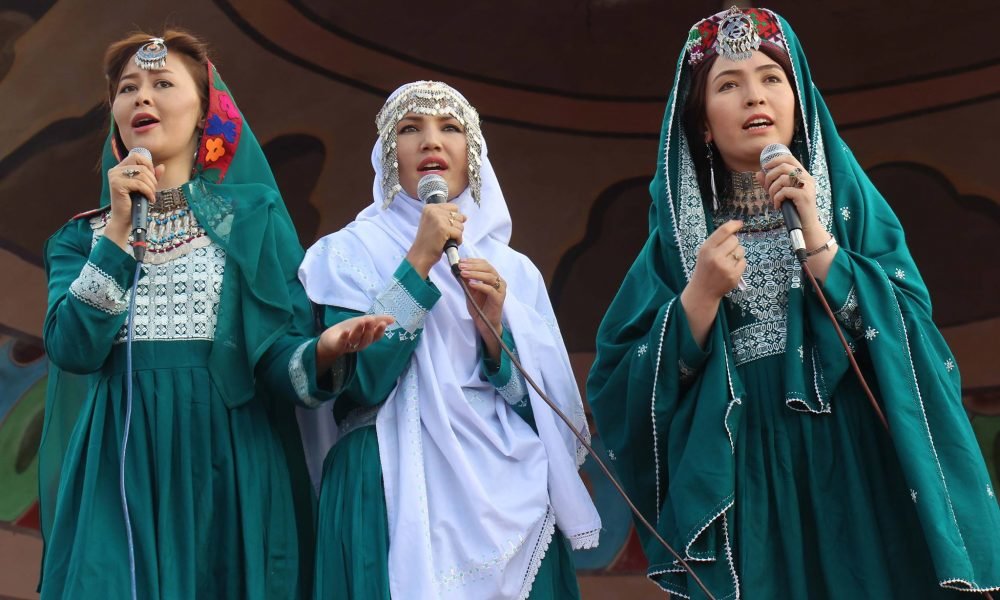
Plastic Surgeons in Afghanistan Offer Women a Change in Ethnicity

A young 25-year-old Afghan woman is convinced that she has been dealt a bad hand by nature and could have been born prettier. She feels that she needs bigger eyes and wishes to get rid of the unwanted skin above their eyes, saying that it annoys her to no end and that it pained her to even look at it. Then, there’s that nose which is rather small, flat, and utterly unattractive. The young lady would definitely want a bigger one.

Let us call this young lady Zahra as she and other women patients in this story requested that their full names be withheld because of the sensitivities involved and which surround their situations in Afghanistan. Dr. Zalmai Khan Ahmadzai, an aesthetics specialist and dermatologist from Kabul, is the doctor who is to work on Zahra. His clinic is overflowing with hopeful patients.
The Birth of Cosmetic Surgery in Afghanistan
Dr. Ahmadzai is a proud doctor with two dozen certificates and awards from India, Germany, Dubai, etc. and the list goes on. On his desk stands a framed picture with him shaking hands with Ashraf Ghani, the President of Afghanistan. Ahmadzai says that when he inaugurated his Kabul-based clinic about 10 years ago,, people were very unconvinced about cosmetic surgery and doubted if there would be side effects or even worse, permanent damage! The common fear was that laser rays used, could induce cancer but he scoped out a potential market.
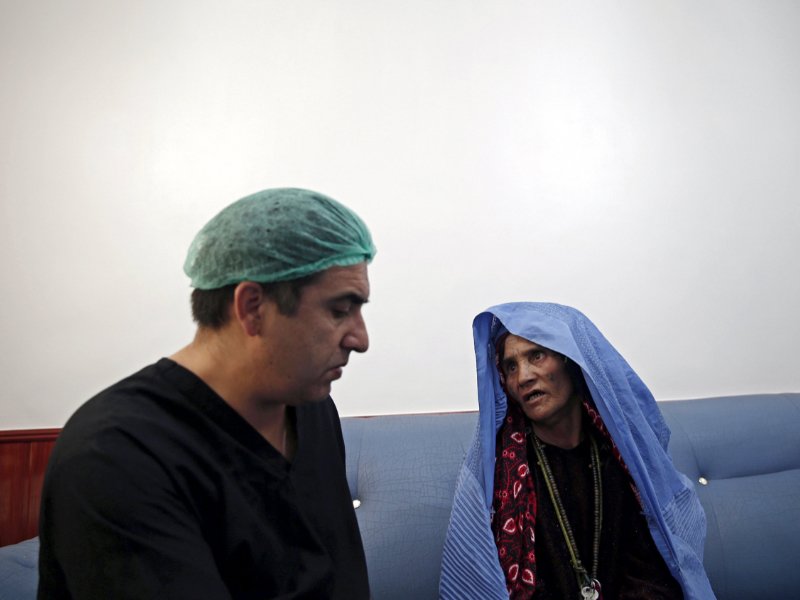
Ahmadzai took to marketing his services on the television, appearing on national programs and in ads, he told the trusting Afghans — targeting the average young Afghan woman — that they need not just dream about wrinkle free skin, they can actually have it, forever. He proclaimed that cosmetic surgery had finally arrived in Afghanistan. Now people are much more aware about aesthetic specialties, dermatology and plastic surgery. Ahmadzai’s timing couldn’t have been better as the majority of women visiting Ahmadzai’s clinic became adults under the Taliban rule of law, when music, television and movies were banned. The ultra-conservative group used to publicly hang television sets claiming that watching TV steered people towards moral corruption.
The Hazara community’s persecution
But those days are long gone. Zahra, Ahmadzai’s patient, is influenced by Bollywood movies, which she watches on the Internet and sometimes on satellite TV at home. She wishes to look exactly like the celebrities she sees daily on her screen. Ahmadzai shows images of his handiwork, on his computer monitor at his clinic, passing through a virtual book of industry standard before-and-after pictures of his previous clients who got work done on their eyes and noses. Zahra is plainly obsessed with big noses and big eyes as her appearance is radically different from that of most Afghans in and out of the country.
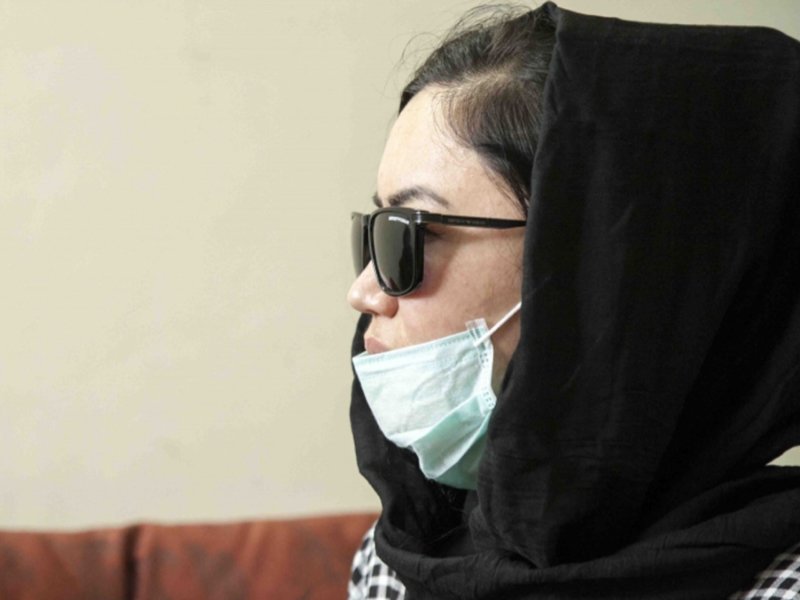
She belongs to the Hazara community, a minority group called the who are said to have descended from the Mongols under Genghis Khan. The Hazaras constitute only 9% of Afghanistan’s population, and they follow the Shiite arm of Islam, unlike most Afghans who either Sunni or Pashtun. The Hazaras have Mongoloid features – moon-type face, swelling eyes and tiny cute nose. The history buffs would know that the Hazaras’ history in the country is entwined with discrimination and brutality, as ISIS and the Taliban both were known to attack Hazara neighborhoods, schools and mosques in particular. These extremists justified targeting Sunni groups calling the Hazaras, apostates. In the present scenario, as word about his operations and the clinic spread, Ahmadzai started having many Hazara patients who wished to be normal like other people.
Cosmetic Ethics?
What about the ethics of plastic surgeries being conducted in Afghanistan about changing how patients look, not for specific health reasons or to beautify a feature but only to resemble a completely different ethnicity and thereby, identity? Most people prefer this surgery to change their natural faces. Dr. Ahmadzai says that he is helping these women, who arrive, with their minds firmed up and nobody coerces them. He explains in detail what the operation involves, the complications and benefits of surgery and if the client agrees, an agreement is signed and only then is the operation conducted.
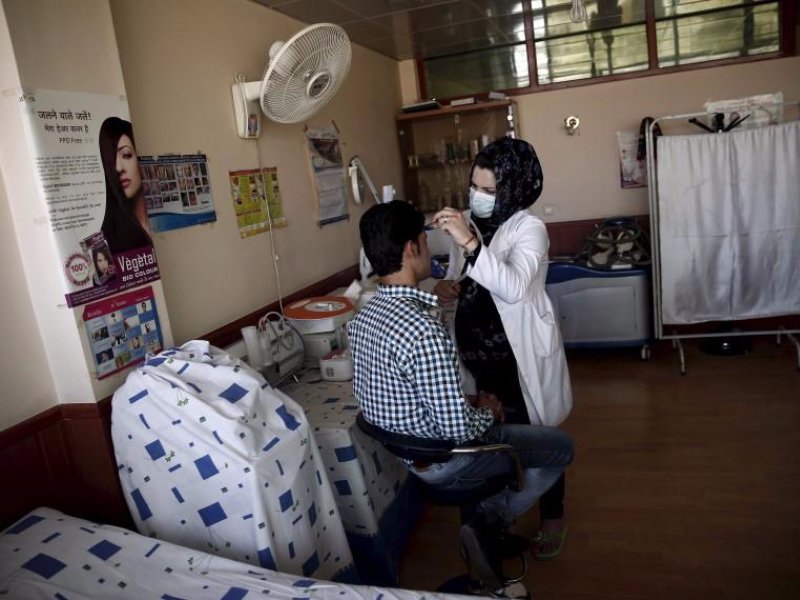
But Zahra’s response is that it’s not that she desires to change her Hazara features, she just wants to look beautiful with a larger nose and big eyes. And she’s not alone. Fatima is another 26-year-old Hazara patient of Dr. Ahmadzai who was operated on to make her eyes seem bigger. She says that she is happy with the results of the first surgery and now wants a bigger nose. Is it to disguise her Hazara identity? She proceeds to shake her head and says it’s not because she despises looking like a Hazara but definitely wants to look prettier than she does now.
Standards of Prettiness
But these women are clear about what ‘pretty’ means. It’s about not looking Hazara. Both are unmarried and their families have agreed to pay for the surgeries and look after them till they recover. Dr. Ahmadzai, secures about 20 to 30 clients every month who belong to the Hazara community, mostly women who want to enlarge their noses and eyes. He says that does not do this just as an income source but also to assist women like Zahra and Fatima who only wish to look ‘normal’ to others.
More in Plastic Surgery
-
`
How to Build Muscles & Gain Mass After 50
Are you wondering how to build muscle mass after 50? You are not alone. Many people think that hitting the big...
June 20, 2024 -
`
How to Speed Up Your Nose Job Recovery Time
Undergoing a rhinoplasty is an exciting step towards a new appearance, but it comes with a recovery period that requires patience...
June 15, 2024 -
`
Best Tattoo Ideas for Women With Meaning
Are you on the hunt for tattoo ideas for women with meaning? Tattoos are more than just body art; they’re personal...
June 4, 2024 -
`
What Are Actives in Skin Care Products and How Do They Work?
Have you ever sifted through a sea of beauty blogs and stumbled upon the term “actives”? Maybe you’ve seen advice on...
May 31, 2024 -
`
How Long Can Pre Workout Last? Find Out Now!
You lace up your sneakers, pull on your workout gear, and glance at the clock. It’s almost time to hit the...
May 23, 2024 -
`
How Often Should You Get Botox Injections? A Comprehensive Guide
If you’ve ever considered the wonders of Botox, you’re likely familiar with its ability to smooth away those pesky forehead wrinkles...
May 16, 2024 -
`
Why is Dubai’s Popularity Soaring Among Tourists?
Dubai, a name synonymous with extravagance, innovation, and a captivating blend of modern marvels and ancient traditions. This captivating city, nestled...
May 9, 2024 -
`
Maximizing Your Skincare Routine: Learn How to Layer Skincare Products
Navigating the realm of skincare can feel daunting, especially with an array of products to apply. However, fear not! Learning how...
May 1, 2024 -
`
How to Restore Gut Health After Antibiotics – Practical Tips and Strategies
Ever finished a course of antibiotics and felt a rumble in your tummy? You’re not alone. Antibiotics, while crucial for fighting...
April 27, 2024



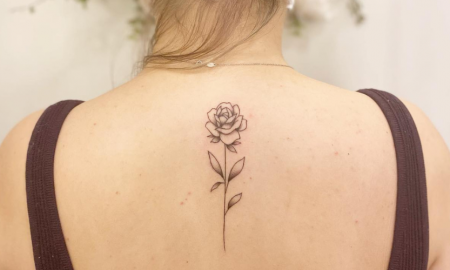
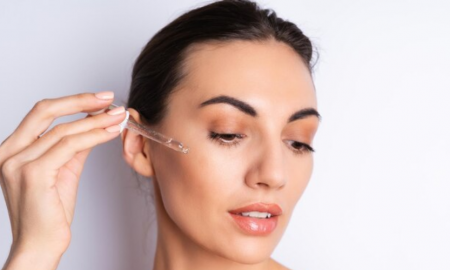


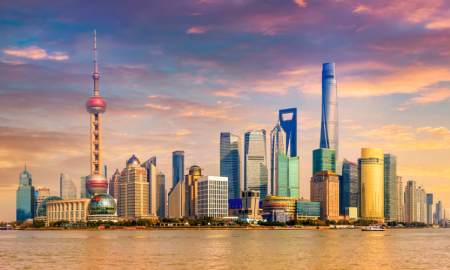
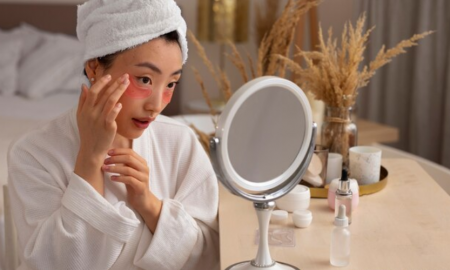





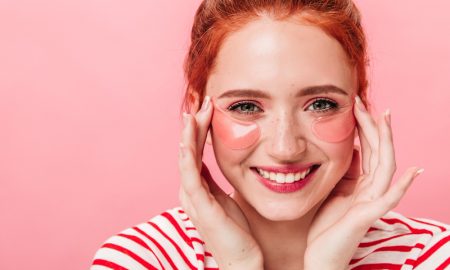
You must be logged in to post a comment Login